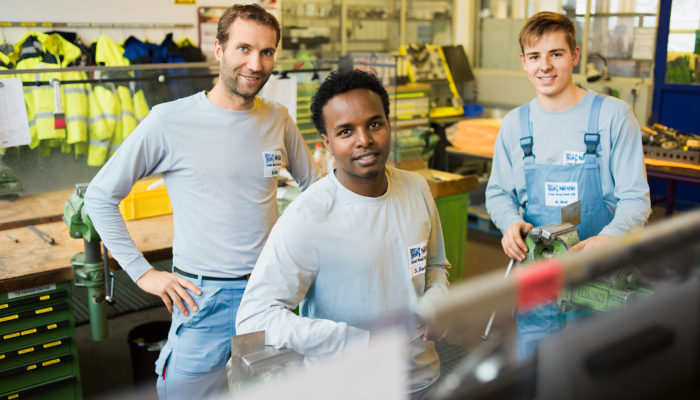How Can Refugees Successfully Integrate into the Dutch Labor Market?
During the 2015 and 2016 refugee crisis in Europe, the Netherlands was one of the destinations for refugees from different countries, including Syria and Afghanistan. Most likely, refugees with residence permits will stay in the Netherlands for a long period of time because of the uncertain security situations in their home countries. Therefore, policy makers are in need of solutions that can help these refugees to successfully integrate into the labour market. A solution is crucial because after arrival most of refugees face multiple challenges. Such challenges go beyond cultural differences and include a lack of proficiency in the Dutch language, a lack of social networks with Dutch natives, struggles with the recognition and evaluation of educational diplomas, as well as mental health concerns (e.g., stress and depression). Additionally, the labour market in the Netherlands is highly regulated and requires highly skilled workers, which may negatively affect refugees’ successful labour market integration.
The integration of refugees into the labour market not only improves their own social integration, but also contributes positively to the host country’s economy. Our interviews and conversations with nearly thirty Afghan and Syrian refugees who have integrated into the Dutch labour market reveal that social and human capital are important, but are not the only avenues towards the successful labour market integration of refugees.
Social and Human Capital
Social Capital
Bonding and bridging are instrumental components of social capital, both helping to promote the integration of refugees into the labour market of a host country. Social bonding includes contacts between homogenous groups, for instance, with families and relatives, (close) friends, as well as with refugees and migrants from the same ethnic background and nationality. Contacts built through social bonding can help refugees in a host country through many challenges, including with finding information on where and how to find work. We found that bonding social capital not only supports refugees in finding low-skilled work, it also may help them secure mid to high occupational positions as well.
In contrast to bonding, bridging social capital includes contacts between heterogeneous groups, for instance, with a host country’s citizens, employment agencies, and municipalities as well as migrants and refugees from different countries. Notably, bridging social capital creates a wider network for refugees in a host country. This type of social capital is more likely to support refugees in attaining higher income and higher occupational status. This is because, in host countries such as the Netherlands, natives often work in highly-skilled and/or high-status jobs. Furthermore, they tend to be more aware of the labour market state compared to (recently arrived) refugees. Of our Afghan and Syrian refugee respondents, the majority desired to have social contacts with the Dutch natives as a strategy to successfully integrate into the labour market.
Human Capital
In addition to social capital, human capital includes a refugee’s education and qualifications, skills, health status, work experience, and language proficiencies. Having these forms of capital are important, but they are not the only factors for a refugee’s successful labour market integration. We found that more than half of our respondents have not yet successfully integrated into the Dutch labour market, despite having both social and human capital. When asked about the reasons, they indicated: (1) the lack of necessary support from bridging contacts and that some bonding contacts distance themselves from their relatives or friends; (2) discrimination in the labour market due to the rise of negative opinions towards refugees; and (3) difficulties in transferring human capital to the labour market of the host country due to mistrust and the mismatch of their qualifications and prior relevant work experience.
Recommendations
To support refugees’ successful labour market integration, stakeholders need to take multiple steps. For example, more efforts should be made to support the formation of social networks between Dutch natives and refugees as well as to establish and improve cooperation among refugee associations. Finally, as part of their Corporate Social Responsibility (CSR), companies should give refugees the opportunity for employment. Many companies in OECD countries have been slow in hiring refugees for various reasons, including cultural differences, lack of language proficiency, lack of relevant experience, and lack of qualifications. However, recent evidence from 300 companies in Germany who have hired 2500 refugees show that these kinds of “challenges are manageable” and that the integration of refugees’ into the labour market is viable. Such decisions would not only show the commitment of businesses towards their social responsibilities, but could also: prevent refugees from relying on social welfare benefits or falling into poverty; help companies to learn from the experiences of refugees; and, further, increase national cohesion in the host society.
